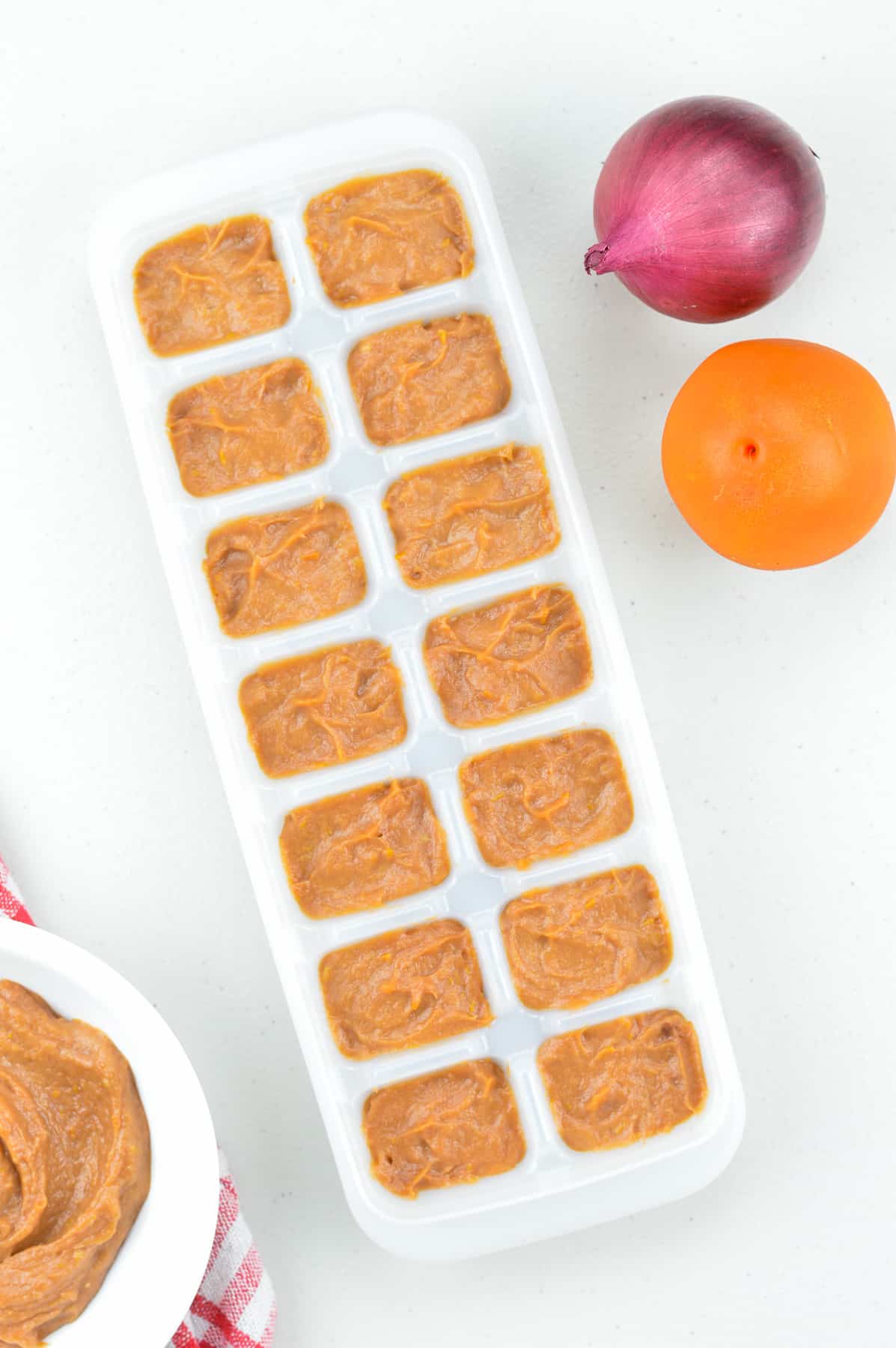Can You Freeze Curry Paste? A Helpful Guide for Busy Parents
In the bustling world of smart cooking and food management, finding shortcuts to preserve flavors and save time is paramount for busy parents. If you’re asking, “Can you freeze curry paste?”, then this handy guide is all set to help you out!
Understanding Curry Paste
Before digging into the freezer details, it’s imperative to understand what curry paste essentially is. A vibrant blend of aromatic spices, herbs, and other flavorful ingredients, curry paste forms the base of multiple delectable dishes and brings a burst of taste to the table. Curry paste can be store-bought or homemade and typically includes elements like chili peppers, turmeric, garlic, shallots, lemongrass, and more.
The Shelf Life of Curry Paste
You might be taken aback by the expiration date that’s far in the future when you pick up a jar of curry paste from a supermarket shelf. That’s primarily because these products contain preservatives to maintain their freshness. However, once opened, the curry paste needs to be used within a specific time frame, often within 2 weeks, or it might start to lose its appealing aroma and flavour. This brings us to the question…
Can You Freeze Curry Paste?
The straightforward answer to the question “Can you freeze curry paste?” is a resounding YES! Freezing curry paste is an excellent method to extend its life while keeping the delectable kick of flavour intact. Not only does it work for store-bought varieties, but it’s also a fantastic option for homemade versions. So parents, rejoice! Now you have the ease of ready-to-use curry paste at your disposal, without having to worry about it spoiling anymore.
Why Should You Freeze Curry Paste?
If you’re wondering about the benefits of freezing curry paste, there is more than one reason that’s going to have you stocking up your freezer. Firstly, this method ensures that you will always have this wonderful flavor enhancer on hand for those last-minute dinner plans. Secondly, freezing prevents wastage which would otherwise happen if it’s not used within the specified time. Most importantly, it retains the flavor just as brilliantly, so there’s no compromise on the taste!

How to Freeze Curry Paste?
Now that we’re clear on the point that yes, you indeed can, and should freeze curry paste, let’s look at ‘how’. Freezing curry paste is extremely simple and can be done using standard kitchenware.
Step-by-Step Guide to Freezing Curry Paste
- Portion Out: First, it’s important to portion the paste out. You can divide the contents into several dollops or spoonfuls based on the usual amount you end up using in a single preparation. This way, whenever you need curry paste, you can simply grab as many portions as you need.
- Choose a Container: Once you’ve portioned your paste, it’s time to store it. Using a freezer-friendly container or a silicone ice cube tray works great. Just ensure that whatever you use is clean and completely dry before adding the paste into.
- Freeze: Next, spread the curry paste evenly in your selected container or tray, and then place it in the freezer. Make sure there’s room for the container to sit flat while it freezes.
- Storage: After the curry paste is fully frozen (usually after a few hours), you can transfer the chunks into a Zip-lock bag or airtight container. Make sure to clearly label it with the date of freezing to keep a track of its freshness.
How to Use Frozen Curry Paste?
One of the best parts about freezing curry paste is that you don’t actually have to defrost it before use! Just take out the portion you need, and you can add it straight into your cooking pot. It will quickly melt and blend well with the rest of your ingredients.
How Long Can You Keep Curry Paste in the Freezer?
When stored correctly, you can keep curry paste in the freezer for up to 6 months without it losing its flavour or aroma.
Final Thoughts
So parents, there you have it! An easy, practical way to make sure your kitchen never runs out of the deliciousness that is curry paste. Can you freeze curry paste, you ask? Absolutely. So, keep enjoying those aromatic flavours in your meals without any stress about wastage or spoilage. Happy Cooking!
Can You Freeze Curry Paste: Top 5 Tips For Parents
Absolutely, you can freeze curry paste! It’s a fantastic method to preserve its bold and flavorful character, while conveniently having a ready-to-use ingredient at hand. Here are five essential facts parents should be aware of when preparing to freeze curry paste.
1. Proper Storage is Key
To keep the curry paste as fresh as possible, store it in an airtight container or heavy-duty freezer bag. This will protect the paste from absorbing other flavors in your freezer and prevent freezer burn.
2. Portion Before Freezing
Parenting is a busy job. By portioning out the curry paste in tablespoon or teaspoon sizes in an ice cube tray before freezing, you ensure that you have quickly accessible, ready-to-use curry portions for future meals.
3. Defrost Only What You Need
Curry paste can become more watery if it has been defrosted and refrozen. Therefore, only remove and defrost the amount of paste you need for a specific meal. This will save waste and keep the paste at its best.
4. Freezing Doesn’t Diminish the Flavor
Don’t worry about the strong taste of your curry diminishing after freezing. If properly stored, frozen curry paste will keep its delicious, rich flavors intact.
5. Pay Attention to the Expiry Date
Although freezing extends the life of curry paste, it doesn’t make it immortal. Always note the preparation or purchase date and consume it as soon as possible. Generally, curry paste can last up to 4-6 months in the freezer.
Remember, preparation is half the job when it comes to cooking. By freezing curry paste, you set yourself up for quick, hassle-free meals that don’t compromise on taste. Happy cooking!
For more great articles please see here. For more information see here
Disclaimer
The articles available via our website provide general information only and we strongly urge readers to exercise caution and conduct their own thorough research and fact-checking. The information presented should not be taken as absolute truth, and, to the maximum extent permitted by law, we will not be held liable for any inaccuracies or errors in the content. It is essential for individuals to independently verify and validate the information before making any decisions or taking any actions based on the articles.




